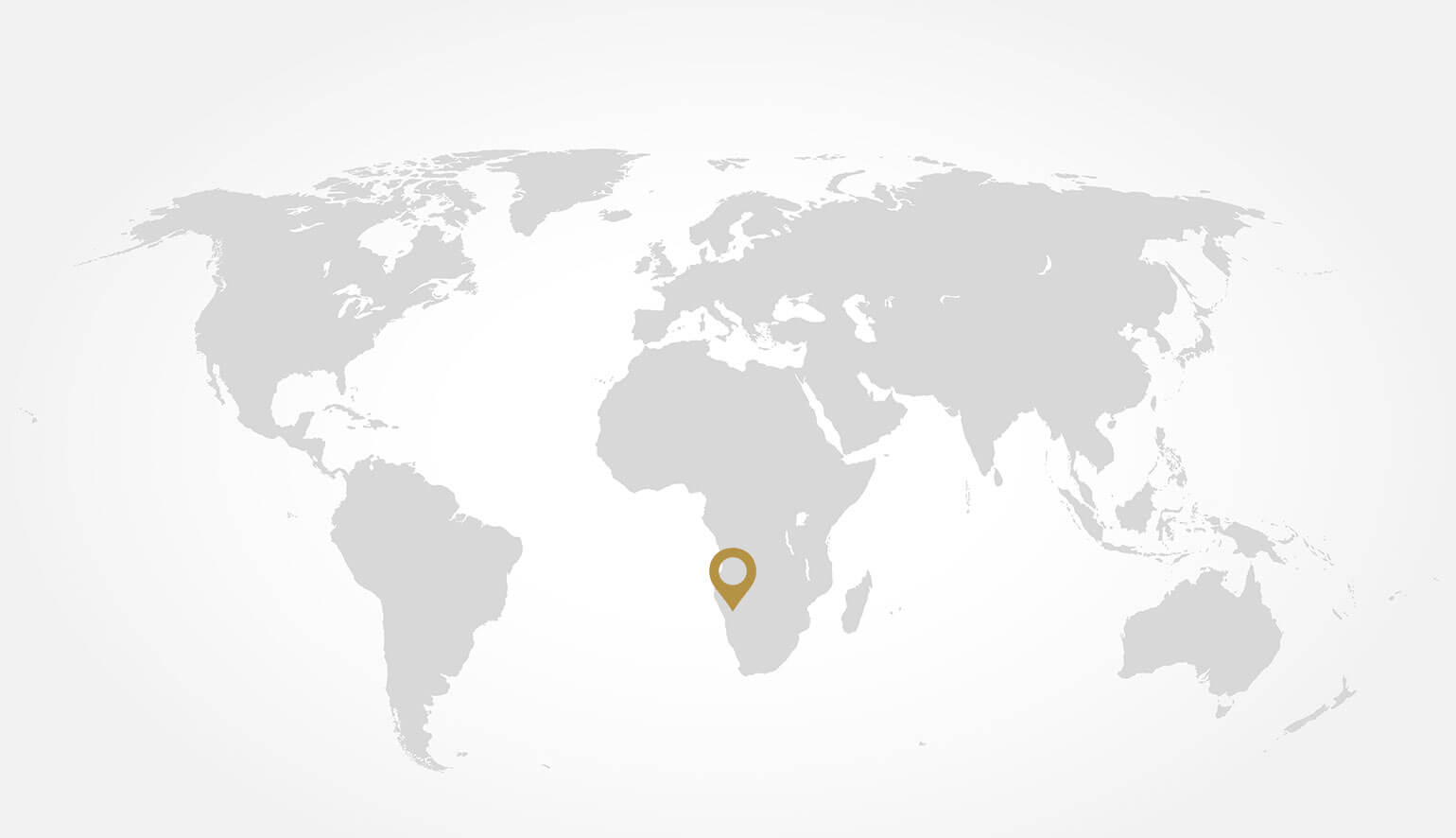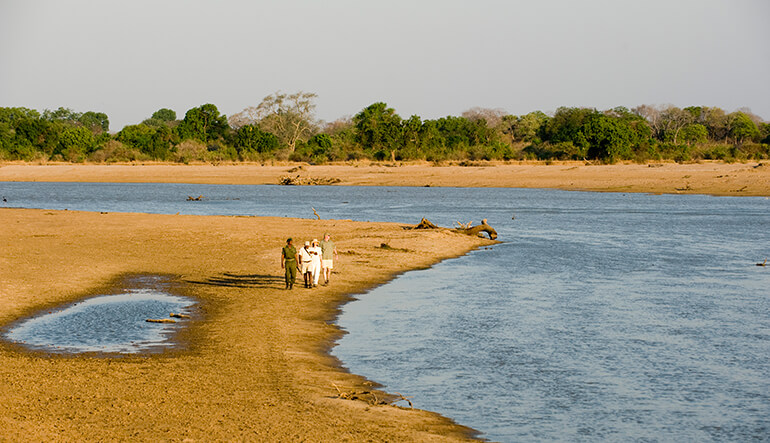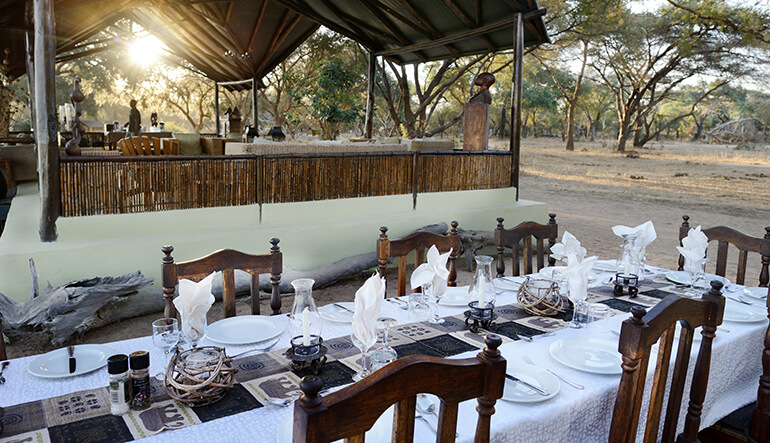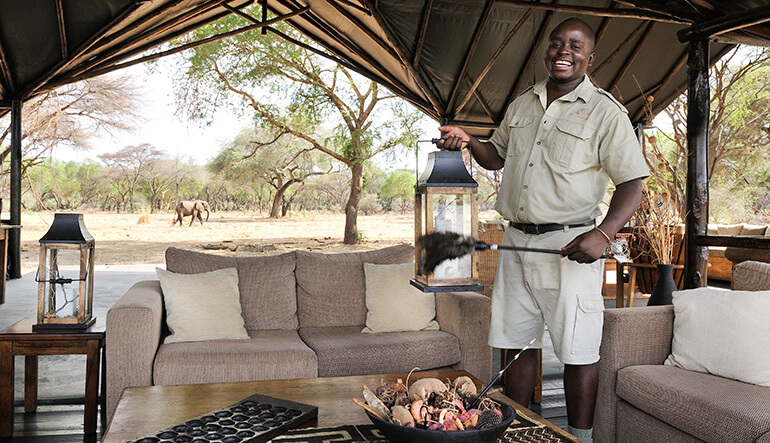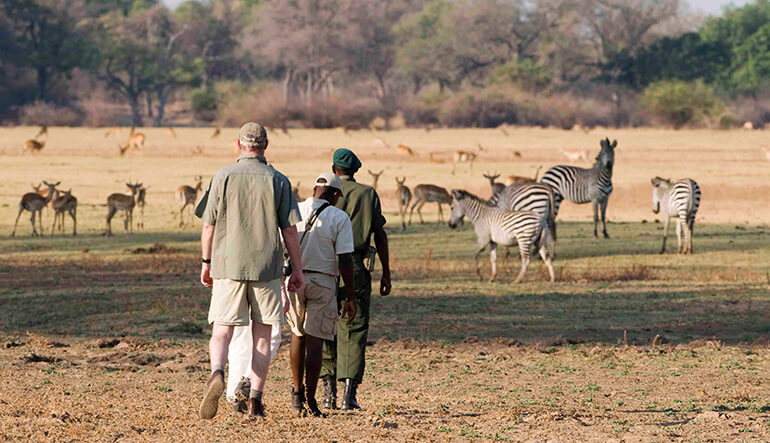Zambia
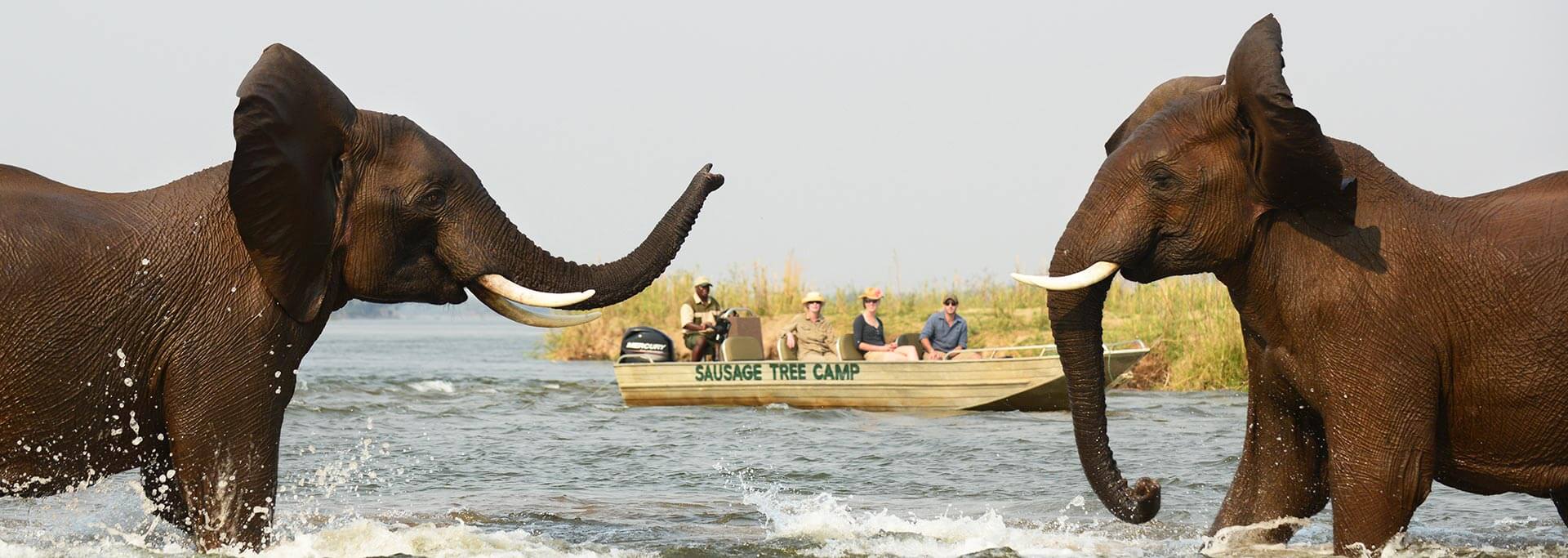
With vast landscapes, diverse wildlife populations, and unique and colourful cultures, Zambia is a nature lover’s paradise.
An adventure enthusiast’s dream destination, Zambia may not be the most obvious choice when planning an African safari holiday; its roads are poorly maintained and unfenced safari camps can deter even the bravest of travellers; but those who visit this untamed wilderness will be rewarded with unforgettable scenery, sightings and experiences that will be etched in their memories forever.
Why Travel to Zambia
Zambia is relatively uncrowded in comparison to other African safari destinations, allowing travellers to enjoy a more intimate and private safari vacation. It borders Zimbabwe and shares views of the magnificent UNESCO World Heritage Site of Victoria Falls, one of the Seven Wonders of the World.
Here, travellers can bridge swing or bungee jump to maximise on the view across the Zambezi River or swim in the famous Devil’s Pool, a natural occurring infinity pool that overlooks one of the sheer drops of Victoria Falls. As well as the falls, travellers can visit one of 19 pristine and expertly-managed national parks to experience some of Africa’s finest game viewing.
Fun Facts
Zambia is home to no fewer than 19 national parks, ensuring travellers will get their safari fix while on vacation here. The three most popular parks include the South Luangwa National Park in the east, Liuwa Plain National Park and Kafue National Park in the west. The largest of these is Kafue. Covering more than 22,500 square kilometres, it is the only major park in Zambia that’s easily accessible by public transport. Interestingly, Kafue National Park is also one of the largest national parks in the world.
Liuwa Plain is home to the annual Kuomboka (coming out of the water) Festival and is easily incorporated into a Zambian safari for those keen on catching a glimpse into the culture of the Lozi people. It takes place when the plains are flooded during the rainy season, usually around March or April, and marks the passage of the King of the Lozi people from his home in the Barotse floodplain, to the higher lying area of Limulunga.
Zambia’s currency is the kwacha. The term ‘kwacha’ is derived from the Tongo, Nyanja and Bemba dialects to translate to ‘dawn’. A cent or one-hundredth of a kwacha is called ‘ngwee’, derived from the Nyanja language, which means ‘bright’. Together, the Zambian currency of kwachas and ngwees represent a bright new dawn.
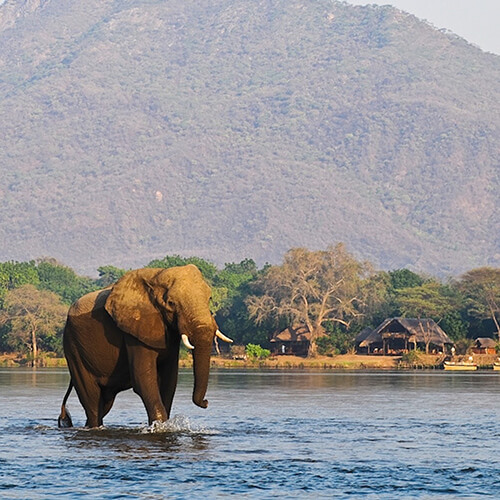
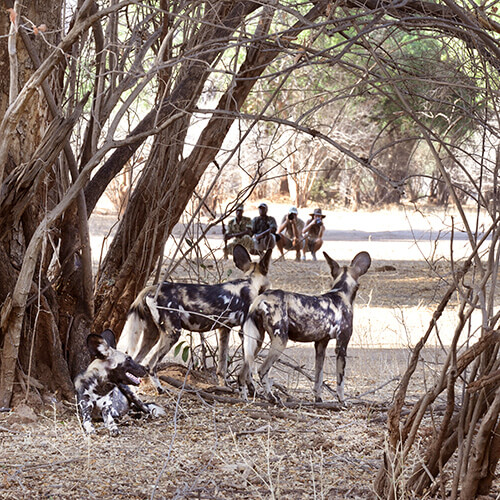
About Zambia
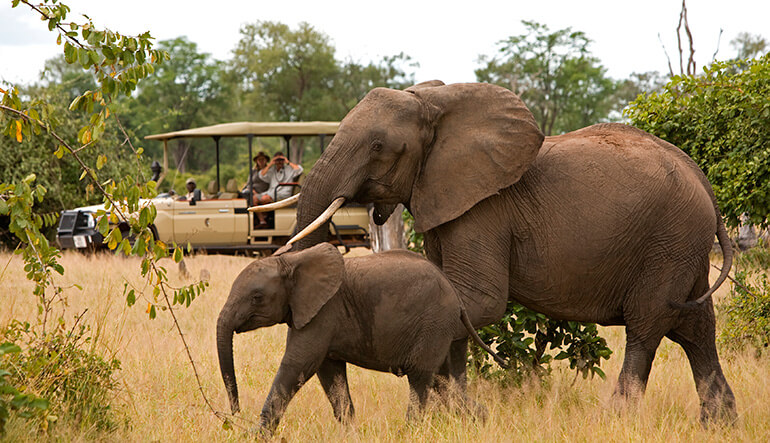
This landlocked country is the corridor between East and Southern Africa and is famed for its secluded and more intimate game viewing opportunities. With exquisite wildlife inhabiting its 19 national parks, Zambia also boasts four major rivers – the mighty Zambezi, the Chobe, Kafue and the Luangwa rivers – which are home to a plethora of wildlife such as hippo, elephant, crocodile and the rare sable and sitatunga antelope.
With luxurious yet tasteful accommodation and a range of adventure activities to keep even the biggest adrenaline junkies occupied, Zambia offers a unique African safari destination that is second to none.
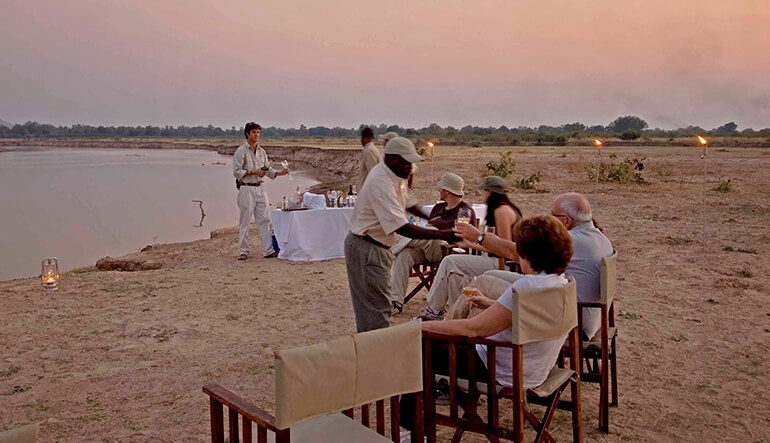
Topography
Most of Zambia sits at a relatively high altitude between 910m and 1,370m (3,000–4,500 ft) above sea level, with hills and mountains peppered across the landscape. The Zambezi River in the south is the lowest point at 329m (1,079 ft) near the majestic Victoria Falls, while the Mafinga Hills tower at 2,339m (7,674 ft) above sea level.
The Barotse Floodplains in the west of Zambia is one of Africa’s greatest wetlands and makes for incredible viewing for travellers visiting Liuwa Plain National Park. The ever-popular Lake Kariba in the south is the largest human-made lake in Africa and is a popular destination for travellers keen to experience a different side of this diverse and exciting safari destination.
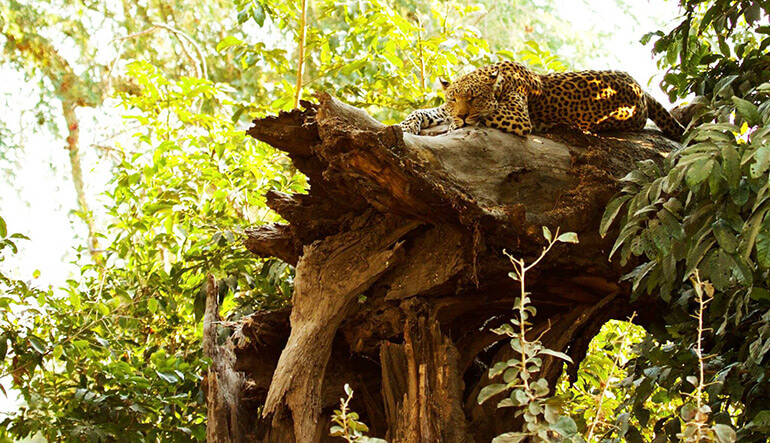
Conservation in Zambia
Bordering eight countries, Zambia is the Southern African poster child for large landscape conservation. It connects wildlife populations between Eastern and Southern Africa, and shares four Transfrontier Conservation Areas with more than 30% of its land managed and conserved for wildlife and landscape conservation.
With seasonal rainfall patterns changing, conserving the land for its inhabitants is of utmost importance through managing and minimising human impact, such as encroachment, poorly planned roads, dams and fencing, and lack of land-use planning.
Organisations like the Zambian Carnivore Programme work towards the conservation of large carnivores and the fragile ecosystems in which they live, while Game Rangers International is a conservation NGO established in 2008 that works with wildlife authorities and local communities in the Kafue National Park in order to create a sustainable environment for both the wildlife and adjacent communities.
When to Travel to Zambia
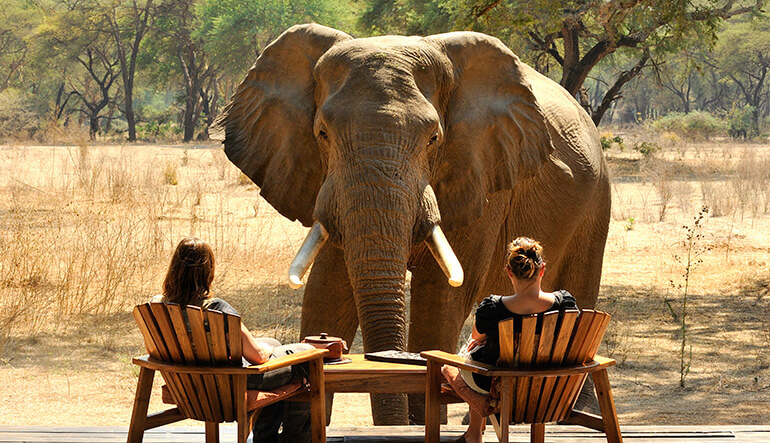
May to October
The best time to visit Zambia is during the dry season which runs from May to October. The dry brush and landscape allow for easier game spotting, while animals congregate around the scarce water holes, so be sure to pack your binoculars and bring your telephoto lenses to capture all the action. The milder daytime temperatures during the dry season are more pleasant than the hot and humid conditions during the wet season.
If you’re keen to see the annual Kuomboka Festival in Liuwa Plain National Park, be sure to visit towards the end of the wet season around March or April.
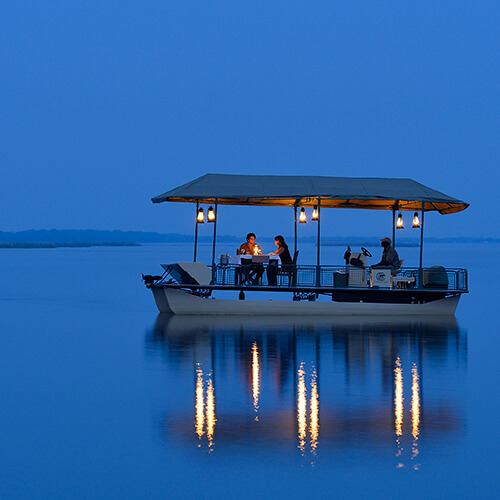
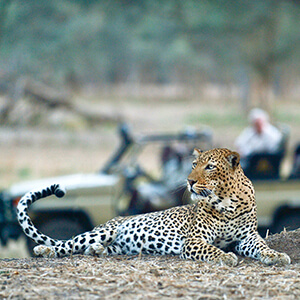
Accommodation in Zambia
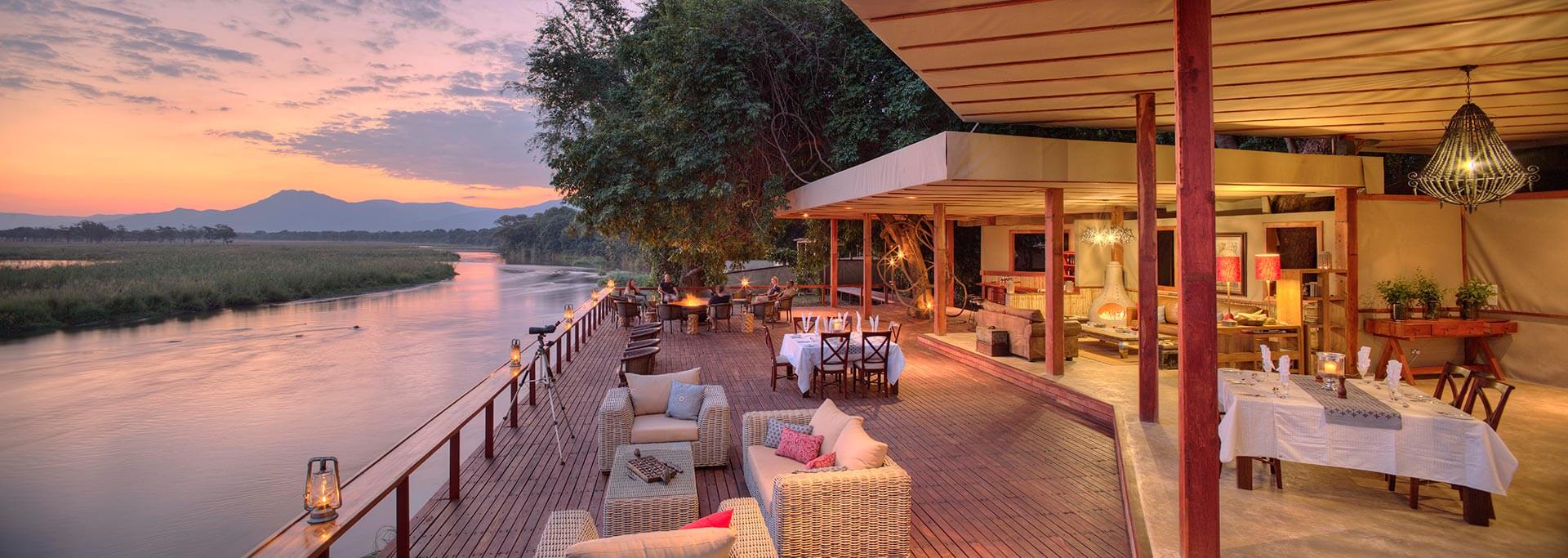
Zambia’s choice of accommodation ranges from informal, unfenced camps off the main roads inside the national parks, to five-star luxury and secluded lodges nestled in the African bush. Despite being relatively remotely located, accommodation in Zambia is private and very luxurious.
From Chiawa Camp’s luxury-style tents nestled on the banks of the Zambezi River and Puku Ridge Camp in South Luangwa National Park overlooking an epic floodplain to the more rustic Old Mondoro, travellers will be spoilt for choice on their Zambian safari vacation.
For those keen to base themselves near the Victoria Falls, the Royal Livingstone Hotel oozes old world charm and sophistication. Travellers who want a presidential feel need look no further than Chichele Presidential Lodge, which was originally built for former Zambian president, Kenneth Kaunda, as his personal retreat. Lovebirds or honeymooners should visit Sausage Tree Camp for Bedouin-style tents with private decks overlooking the mighty Zambezi River. It’s the perfect stop on the 19-day exotic safari and romantic island getaway.
Things to do in Zambia
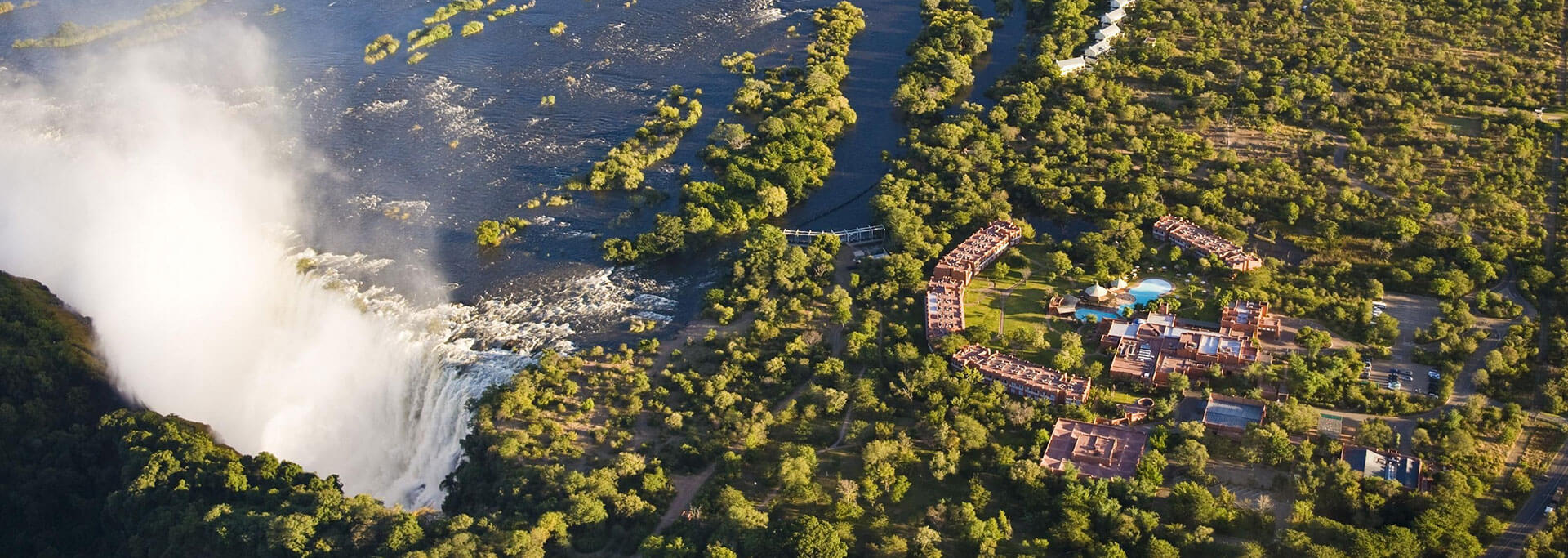
Dubbed the adventure capital of Africa, there are endless activities, and travellers will have a hard time choosing where to begin. Visit the magnificent Victoria Falls and enjoy a bridge swing or bungee jump, take a ride down the wild rapids of the Zambezi River in a white water rafting expedition or enjoy early morning game drives in any one of the 19 national parks on offer.
Delight in a slow and peaceful sunset cruise along the mighty Zambezi in the Lower Zambezi National Park, marvel at the beautiful predators of the South Luangwa National Park, or simply enjoy a candlelit dinner under the African stars and soak up the sounds of the bush.Travel to Zambia
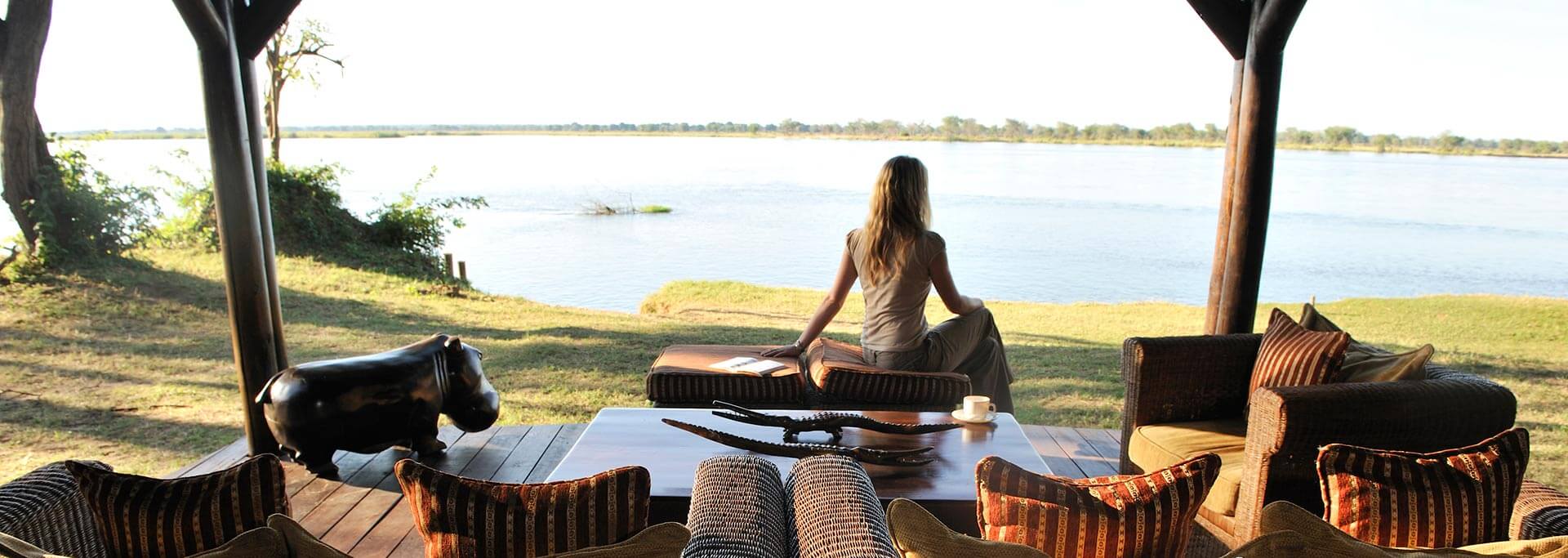
Explore Zambia and contact us to help plan your Zambia safari vacation.
Need help? Talk to an expert!
Contact African Travel Canvas and we’ll help you book your dream vacation to Africa!

